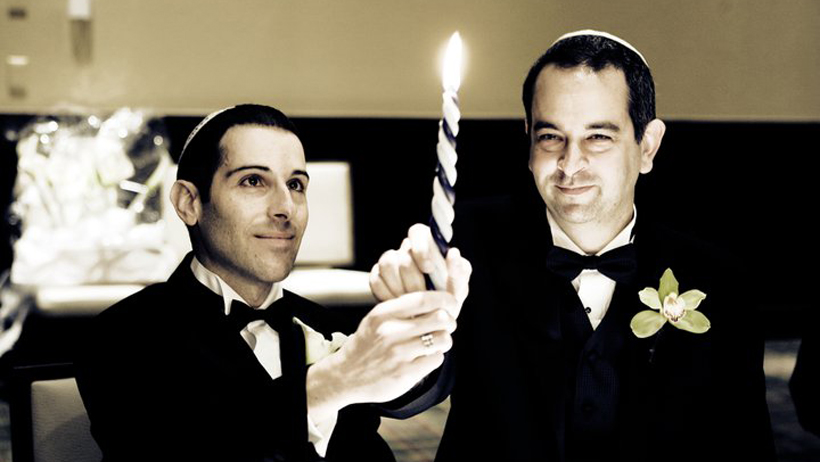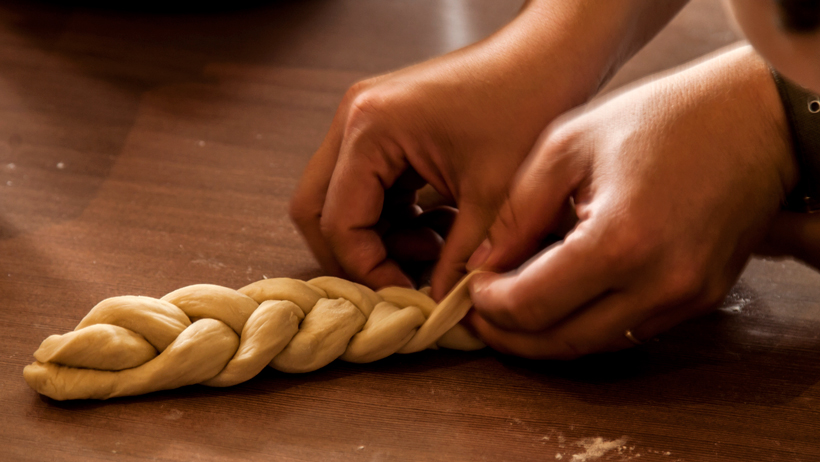My entire life, I've kept kosher. My home has two sets of dishes, hechshered (certified kosher) food and I only eat dairy out. Before my freshman year at the University of Wisconsin-Madison, people asked, "Will you keep kosher in college?" My answer was always, "Yes."
Despite being a meat-lover, I knew I would keep kosher in college; it was such an important part of my identity. I had no intention of breaking my almost two-decade tradition.
Fortunately, the University of Wisconsin-Madison Hillel houses a kosher restaurant called Adamah. The staff knows me by name. One time my receipt printed and one of the staff, who was busy cooking, called out, "You can just rip it, Sari; you've come here enough." The chef will sometimes even let me try new dishes he's working on.
While the food is delicious, however, the menu is pretty limited, and it gets a little boring eating the same deli sandwich every week. Although I'm not going hungry on campus, I do get hungry for the experience of enjoying food.
Other students who keep kosher feel the same way, and before long, my campus eating habits started to feel like The Hunger Games -- literally.
Slowly throughout my two years so far, I've seen my kosher peers start to ease out of the kosher lifestyle. I've nicknamed them -- in keeping with The Hunger Games motif -- "The Fallen." The few of us who've outlasted the rest immediately became close.
Whenever I meet another college student dedicated to keeping kosher, we form an instant connection. This person is attuned to Judaism the same way I am, not to mention, it helps having someone to complain with (in a very Jewish manner) about the lack of kosher food options on campus.
As you might imagine, whatever kosher food you can hoard becomes very valuable. In May, Hillel hosted a Yom Ha'atzmaut celebration with a barbeque. Being the amazing people they are, the staff members let me take home the leftover hotdogs and hamburgers, which would sustain my protein needs for at least a week.
Later that night, I returned to my dorm to discover my neighbors had gorged on the meat as a late-night snack. They finished two-thirds of the hotdogs and hamburgers and were kind enough to tell me how delicious it was, completely unaware of what that food meant to me.
A pang reverberated in my chest. Many nutritionists talk about food as an emotional thing, and I didn't know what they meant until that moment. Food is indeed emotional -- especially when emotions like excitement and contentment turn into irritation and outrage. Let's just say, hell hath no fury like a Jewish girl that keeps kosher.
When I told my mom, she came to the rescue, as any Jewish mother would. She unveiled three packs of Empire chicken which I eagerly placed in my freezer to extend the expiration date. But in no time, it ran out, and it was back to the usual Chipotle sofritas for protein.
Getting adequate protein is a huge challenge of kosher life on campus. One of my friends had to incorporate tofu into her daily diet despite not liking it at all. The jiggling anomaly that is fermented soy became her source of sustenance, and college dining hall tofu is not something you want to eat on a daily basis -- chemicals and food-dye are not the most delicious combination in a tofu salad. But it's that, or be stuck with calorie-filled cheese and bread, a gateway to the infamous freshman fifteen (it is not a myth, by the way; it is real and it is mean).
For some of my friends, the constraints were just too much to bear and they joined the ranks of "The Fallen." One friend was like me -- she planned to keep kosher as she had done her entire life. But slowly, she got pushed to the brink.
It started with a turkey sandwich in the dining hall. To her, eating non-kosher poultry wasn't as bad as meat. But her low-fat non-kosher indulgences slowly manifested into hamburgers and finally crescendoed to -- bacon.
I asked her about keeping kosher. She told me it was just too hard. School and extracurricular activities had become too time-consuming and she felt she needed to keep up with her life without the added stressor of being conscious of kosher food.
So now begs the question: Why do I keep doing it? Why do I put up with unappealing menu options and risk protein deficiency and weight-gain just to keep following an old, seemingly archaic tradition?
It's a hard question to answer. Do I really believe that if I eat a chicken sandwich from Subway or trade in my Chipotle sofritas for a steak burrito that I'll be struck by lightning or spontaneously combust? Not really.
I guess I do it because of my Jewish religion, culture and heritage. Kosher incorporates all of those things. It's religious because it's explicitly stated in the Torah; it's cultural because it brings Jews together over common foods, and it's part of our peoplehood -- it's been observed for millennia.
Keeping kosher is definitely hard, but like many Jewish practices, it's sometimes supposed to be difficult -- like in college on a weekend at 4 a.m. when you friends order a pepperoni pizza or you go to a school where everyone eats brats. Judaism is a religion of questioning these difficulties and grappling with these requirements.
For me, keeping kosher connects me to Judaism. I don't keep Shabbat, and I don't pray every day. The beautiful thing about Judaism is that everyone's practices are different, but we are all Jews. "The Fallen" stopped keeping kosher, but that doesn't mean that they don't have other ways in which they feel connected to Judaism, like going to Hillel or Chabad on Shabbat, or attending Jewish campus events.
Keeping kosher is hard, and it's not for everyone, but I don't think I would be who I am without it.








.jpg)



